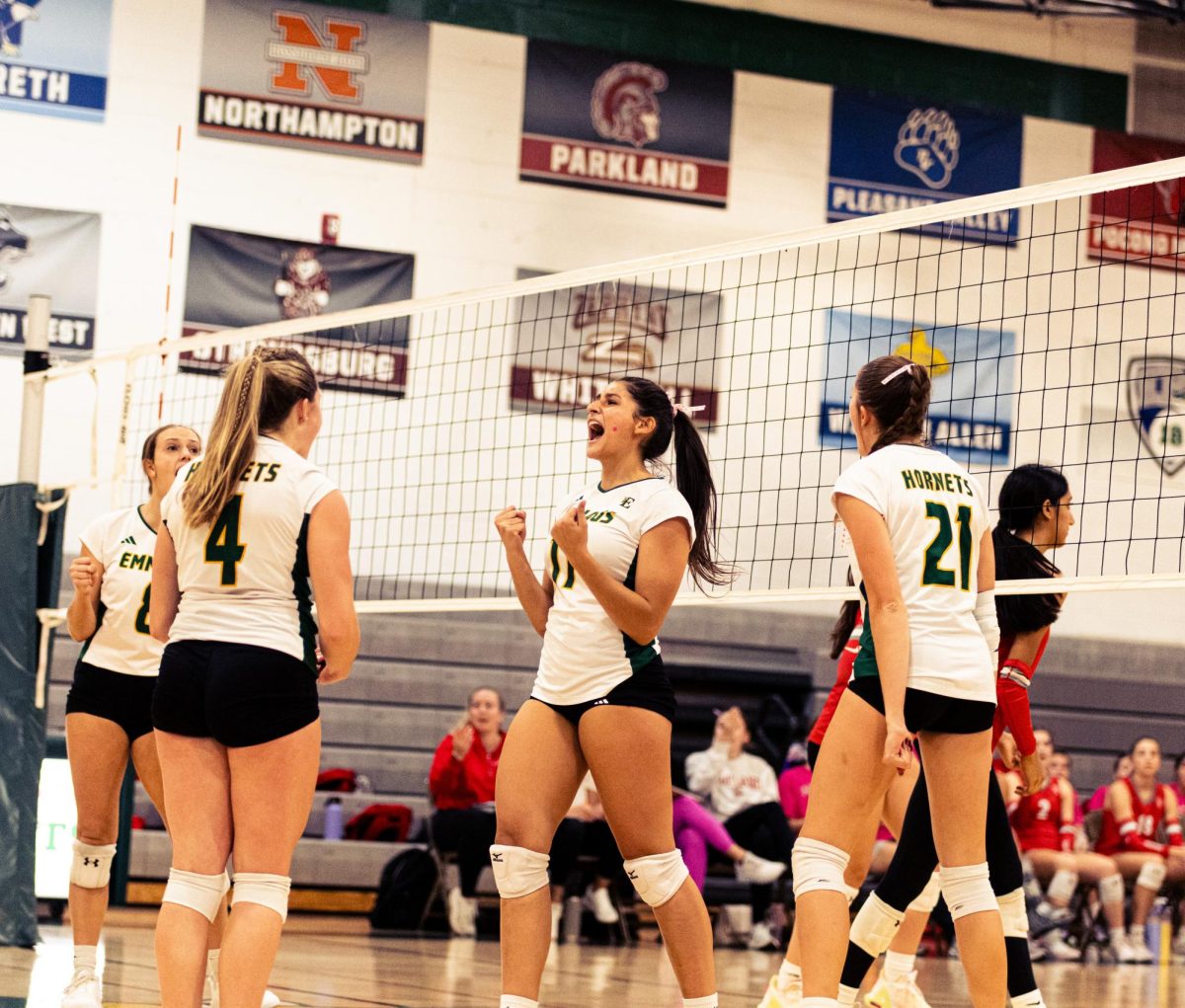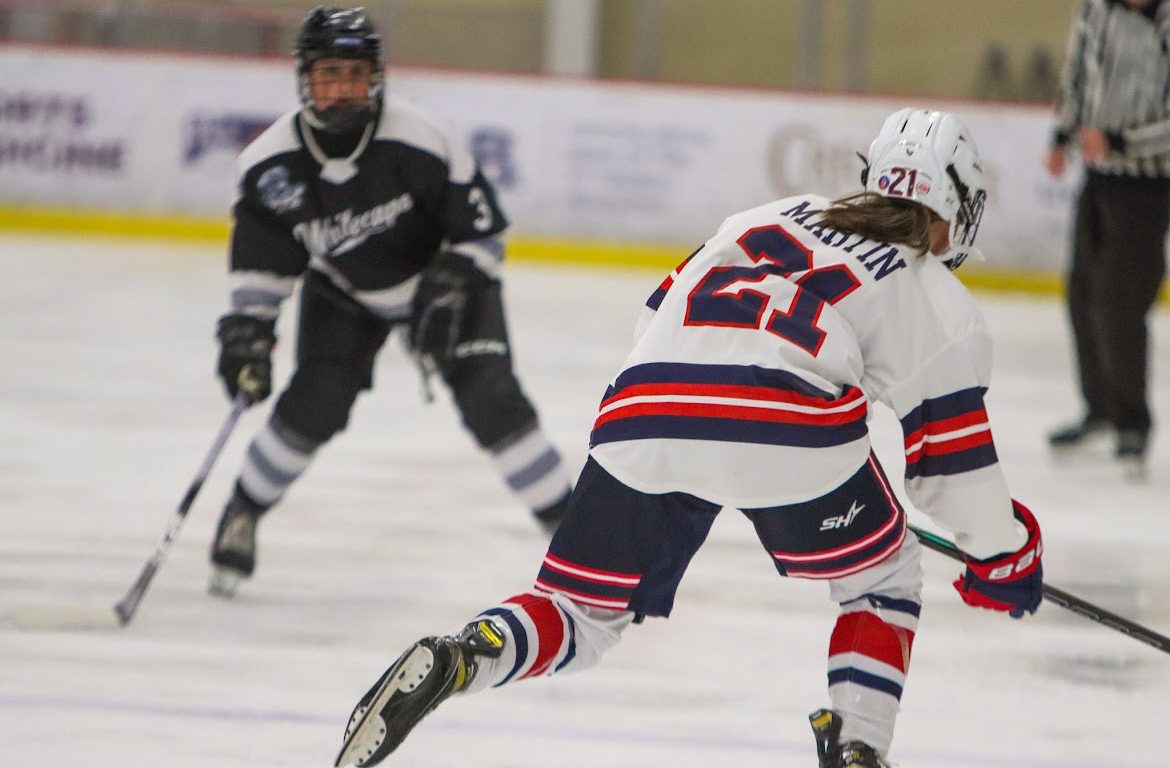Students reflect on growing up as an athlete
Jun 7, 2022
This previously ran in our April 2022 print issue.
As young athletes grow up and their sport becomes more competitive, the love and positive feelings for their first endeavor can waver. Some unlock a new passion for their athletic activity they didn’t know had while others grow tired of the challenges that come with leveling up.
As the gameplay becomes more competitive and the training becomes more demanding, teenage athletes may rethink or regret the decision they made when they were young children. Teens may change sports or stop playing altogether. Some may find their love for the new obstacles they need to overcome.
The opinion on the physical activities that high school athletes participate in can be determined by where they play, how long they have been playing, and who has been a part of the journey.
Junior Madisyn Heiser-Elsea has had many ups and downs in her path of playing volleyball. She has been playing since fourth grade when her mother suggest- ed Heiser-Elsea started playing for the LMYA Volleyball Program.
The level of competition is very minimal. It is a sports program that allows young athletes to find a love for the sport. The coaches focus mainly on strengthening basic skills and making sure the team members are having fun.
As Heiser-Elsea mastered the art of volleyball, she began to move up the ranks, moving on to play for a club team and eventually the high school team.
When she hit her sixth-grade year, Heiser-Elsea began to form negative feelings about her sport. She questioned her love for volleyball due to an unenjoyable experience she was being subjected to while playing on her team. These unsure feelings would not mean the end of her volleyball career.
“I fell in love with it again after I had a really, really good coach and mentor,” Heiser-Elsea said.
While playing a physically demanding and mentally draining sport, an athlete needs a good support system to have around them during the bleak times they might experience. If they lack the support, instead of rising above the challenges, they might decide to quit altogether.
Freshman Lila Schneider has participated in her fair share of sports, starting from a very young age. Schneider has played basketball, hockey, softball, and has competitively swum, cheered, and danced. She always had support from her family, but she felt isolated from the rest of her teammates. Schneider was often bullied or made fun of by the other athletes.
In cheerleading, she thought it was a “popularity contest,” which made the girls try to outdo one another instead of helping each other.
While participating in basketball, she noticed that it was a “very selective” sport and there was “not a lot of opportunity” which added even more pressure to an already stress-inducing sport.
The level of competition also took a toll on her mental health. When Schneider competitively swam, she felt that her mental state was diminishing due to the anxiety she had around the sport. Even though she loved swimming, Schneider needed to end her journey in the pool to work on her mental well-being. Her love for sports was affected by the people who were on her teams, even though her parents fully supported her through the whole process. Schneider’s parents did not force her to join any sports and let her make her own decisions.
Junior baseball player Brandon Leader is an athlete whose sport was picked for him when he was a young child.
“My dad said, ‘You’re going to play baseball,’ and I said, ‘Okay,’” Leader said.
Leader’s father played baseball all throughout his childhood and teenage years. His father’s involvement in baseball was the main reason Leader started playing the sport.
At the beginning of his baseball career, Leader didn’t know if he loved playing. As he began to practice more frequently and build relationships with his teammates, Leader started to fall in love with the sport. Even though Leader’s participation was decided by his father, he has now been playing for 10 years. He has developed a great love for the sport and is now happy that he started playing as a young child.
Not every child develops a long-term love for the sport that was decided by their parents. Some begin the sport because their whole family played it and start out loving it but lose the passion as they grow up.
Junior softball player Aubrey Molnar started playing her sport due to her family’s involvement in softball. Molnar has been playing since she was around six years old. When she started playing, she hated it.
“I played it for a couple [of] years and then I took a break,” Molnar said.
Molnar tried out basketball for a short period of time but eventually came back to softball. After her break, the sport brought Molnar joy, but as the competition became more intense, the sport became more stressful. It took the happiness out of the sport.
“It’s just not as fun as it used to be,” Molnar said.
Even through her rough journey in softball, Molnar does not regret participating in the sport. She has formed many deep friendships that made the whole process worth it.
Every athlete will have a different experience. Some may fall in love with the sport for a lifetime, but others will start off strong and slowly begin to lose, their once strong, passion. It all depends on how they started, why they started, and who was with them along the way.













